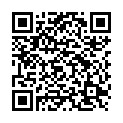|
|
|
| Module code: IPS.TEC3 |
|
1V+1PA (2 hours per week) |
|
2,5 |
| Semester: 1 |
| Mandatory course: no |
Language of instruction:
English |
Required academic prerequisites (ASPO):
Short lecture on a given element from optical sensors. |
Assessment:
Project presentation and documentation
[updated 03.04.2020]
|
IPS.TEC3 International Project Semester, Bachelor, ASPO 01.10.2020
, semester 1, optional course, course inactive since 21.02.2023
Suitable for exchange students (learning agreement)
|
30 class hours (= 22.5 clock hours) over a 15-week period.
The total student study time is 75 hours (equivalent to 2.5 ECTS credits).
There are therefore 52.5 hours available for class preparation and follow-up work and exam preparation.
|
Recommended prerequisites (modules):
None.
|
Recommended knowledge:
Experience with micro-controller (preferably with Arduino).
[updated 03.04.2020]
|
Recommended as prerequisite for:
|
Module coordinator:
Prof. Dr. Martin Löffler-Mang |
Lecturer:
Prof. Dr. Martin Löffler-Mang
[updated 21.02.2023]
|
Learning outcomes:
After successfully completing the course, students can independently prepare a short presentation.
They know the most important individual elements of optical sensor systems and how they can be combined to form more complex systems.
Furthermore, the project work enables the students to set up their own sensor system. They have mastered the application of the methods they have learned and have the basic ability to work independently. In addition, the students have acquired the skills to carry out projects in intercultural and interdisciplinary teams.
They will be able to solve minor conflicts themselves, present their own project results and document them in writing.
[updated 03.04.2020]
|
Module content:
Elements: LED, laser, laser diode, photodiode, CCD sensor, photomultiplier, optical fiber, coupler
Systems: light barriers, triangulation, optical mice, fiber optic sensors, spectrometers, particle measurement technology, flow measurement technology
Realized sensor applications in the past:
Measurement of the bending stiffness of arrows (spine value);
Determination of the launch speeds of bow arrows;
Air Quality Monitoring Device;
Smart Alarm System;
Laser Doppler flow measurements in channels.
[updated 23.05.2022]
|
Teaching methods/Media:
Introductory lecture, self-study, short presentations;
Project work in teams, consisting of:
1. Brainstorming to develop your own sensor application
2. Evaluation of the best ideas
3. Resource and cost estimation, schedule
4. Brief presentation in the plenum with assignment
5. Working phase with mentoring
[updated 03.04.2020]
|
Additional information:
The module is intended for students with in-depth knowledge of Arduino application.
[updated 23.05.2022]
|
Recommended or required reading:
Jansen: Optoelektronik
Eichler: Laser
Young: Optik, Laser, Wellenleiter
Litfin: Technische Optik
Ruck: Lasermethoden in der Strömungsmesstechnik
Löffler-Mang: Optische Sensoren
Löffler-Mang: Handbuch Bauelemente der Optik
[updated 03.04.2020]
|

